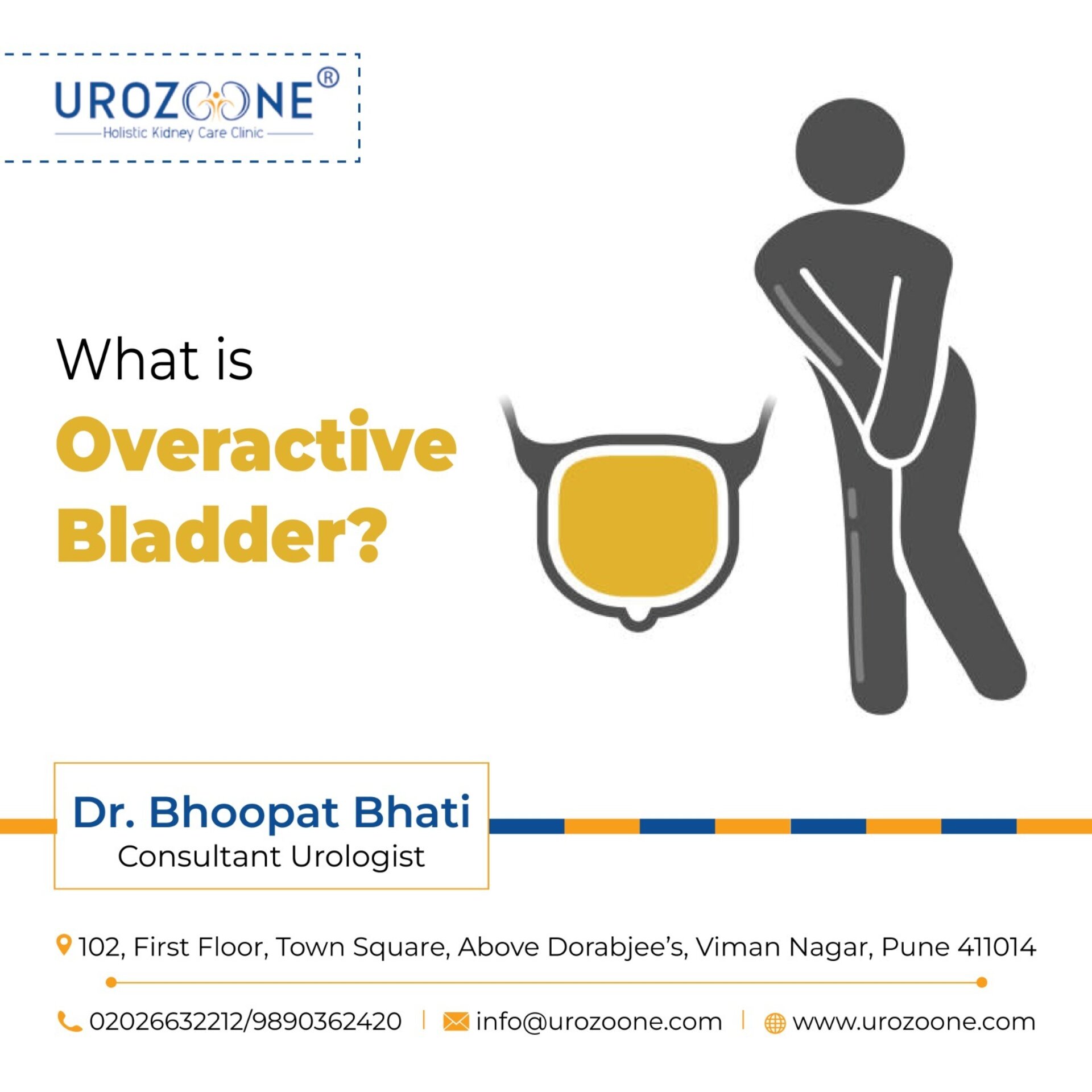If you're dealing with frequent and uncontrollable urges to urinate, it may be a sign of an overactive bladder, a common condition affecting many individuals. Our expert Urologist, Dr. Bhoopat Bhati, offers effective solutions to manage and treat overactive bladder. Don't let this condition disrupt your life – take the first step towards relief by booking your appointment today!

Recognizing the Symptoms:

- Urge Incontinence: Sudden, strong urges to urinate followed by involuntary leakage.
- Frequent Urination: The need to urinate more often than usual, including waking up multiple times at night (nocturia).
- Urgency: Compelling urges to urinate that are hard to control, leading to rushed restroom visits.
- Urinary Frequency: Needing to urinate more frequently, even with smaller urine volumes.
- Nocturia: Frequent nighttime awakenings for urination, disrupting sleep patterns. Urgency
- Incontinence: Urine leakage when the urge to urinate is strong and immediate.
Consult with Dr. Bhoopat Bhati, a Urologist in Pune, for a proper diagnosis and treatment options if you're experiencing these symptoms.

Uncovering the Root Causes:
- Aging: Natural changes in bladder muscles and nerves with age can contribute to overactive bladder symptoms.
- Neurological Conditions: Disorders like Parkinson's, multiple sclerosis, or stroke can disrupt bladder control.
- Urinary Tract Infections (UTIs): Infections in the urinary tract can lead to temporary overactive bladder symptoms.
- Bladder Abnormalities: Conditions like bladder stones, tumors, or inflammation can result in overactive bladder.
- Medications: Certain drugs, including diuretics, may contribute to overactive bladder symptoms.
- Lifestyle Factors: Excessive caffeine or alcohol, inadequate fluid intake, and constipation can worsen overactive bladder.
Identifying the underlying causes is essential for tailoring effective treatment approaches.

Exploring Treatment Options:
- Behavioral Therapies: Bladder training, scheduled restroom visits, and pelvic floor exercises can improve bladder control.
- Medications: Prescription drugs can relax bladder muscles, reduce urgency, and manage overactive bladder symptoms.
- Nerve Stimulation: Techniques like sacral nerve or peripheral tibial nerve stimulation help regulate bladder function.
- Botox Injections: Botulinum toxin injections into the bladder muscle can alleviate symptoms by relaxing muscles. Bladder Procedures: Minimally invasive procedures like bladder augmentation or urinary diversion may be considered.
- Lifestyle Modifications: Adjusting fluid intake, avoiding irritants like caffeine and alcohol, and maintaining a healthy weight can help manage an overactive bladder.
Don't let an overactive bladder control your life – seek expert care from Dr. Bhoopat Bhati and regain control and comfort. Your path to relief starts with a consultation!
Read More-
Understanding Prostate Enlargement - Dr. Bhoopat Bhati
Drinking Beer to Remove Kidney Stones Common myth-busting by Dr. Bhoopat Bhati | Urozoone